Michael Heilman
Fast Rhetorical Structure Theory Discourse Parsing
May 10, 2015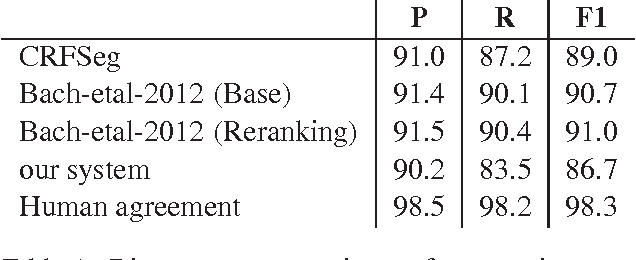


Abstract:In recent years, There has been a variety of research on discourse parsing, particularly RST discourse parsing. Most of the recent work on RST parsing has focused on implementing new types of features or learning algorithms in order to improve accuracy, with relatively little focus on efficiency, robustness, or practical use. Also, most implementations are not widely available. Here, we describe an RST segmentation and parsing system that adapts models and feature sets from various previous work, as described below. Its accuracy is near state-of-the-art, and it was developed to be fast, robust, and practical. For example, it can process short documents such as news articles or essays in less than a second.
Is getting the right answer just about choosing the right words? The role of syntactically-informed features in short answer scoring
Mar 05, 2014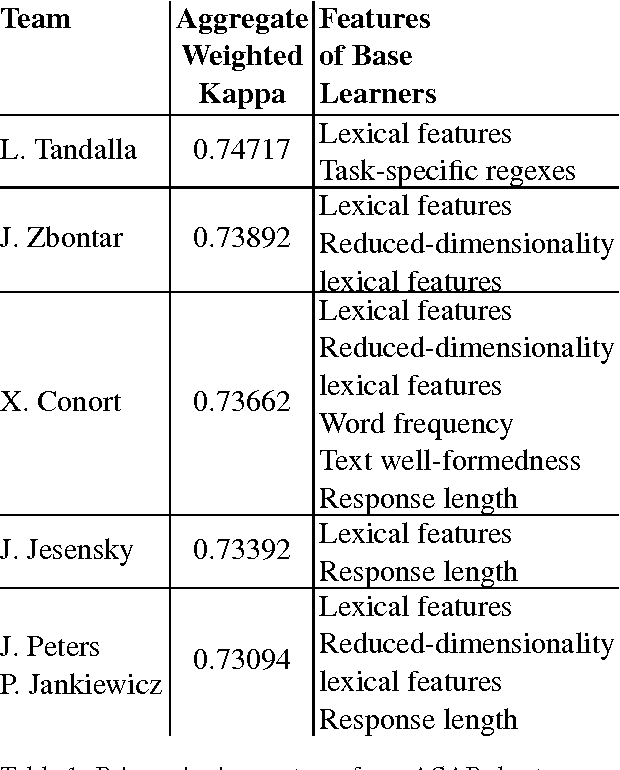
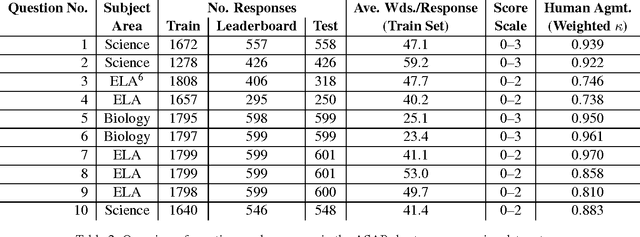
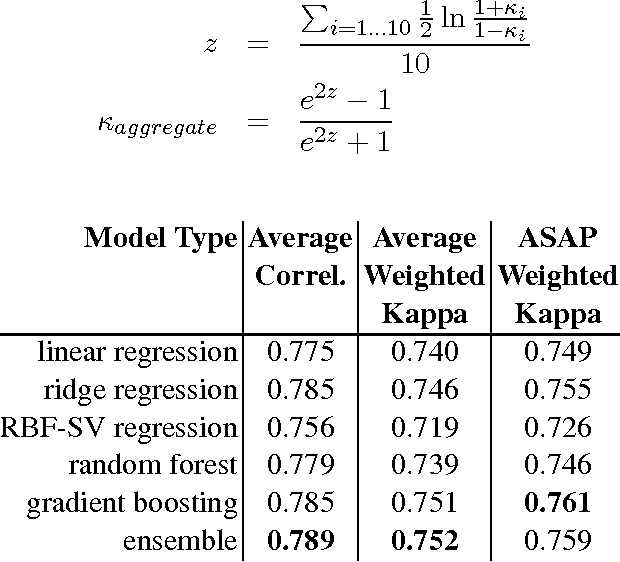
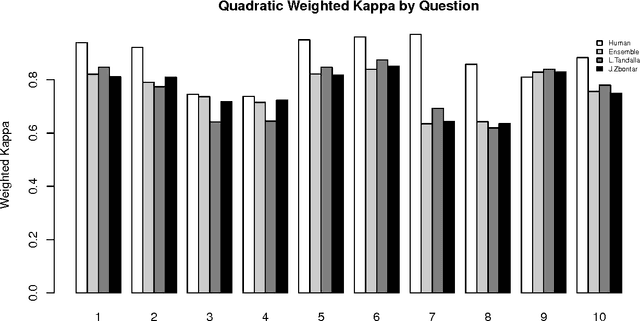
Abstract:Developments in the educational landscape have spurred greater interest in the problem of automatically scoring short answer questions. A recent shared task on this topic revealed a fundamental divide in the modeling approaches that have been applied to this problem, with the best-performing systems split between those that employ a knowledge engineering approach and those that almost solely leverage lexical information (as opposed to higher-level syntactic information) in assigning a score to a given response. This paper aims to introduce the NLP community to the largest corpus currently available for short-answer scoring, provide an overview of methods used in the shared task using this data, and explore the extent to which more syntactically-informed features can contribute to the short answer scoring task in a way that avoids the question-specific manual effort of the knowledge engineering approach.
ARKref: a rule-based coreference resolution system
Oct 08, 2013



Abstract:ARKref is a tool for noun phrase coreference. It is a deterministic, rule-based system that uses syntactic information from a constituent parser, and semantic information from an entity recognition component. Its architecture is based on the work of Haghighi and Klein (2009). ARKref was originally written in 2009. At the time of writing, the last released version was in March 2011. This document describes that version, which is open-source and publicly available at: http://www.ark.cs.cmu.edu/ARKref
 Add to Chrome
Add to Chrome Add to Firefox
Add to Firefox Add to Edge
Add to Edge